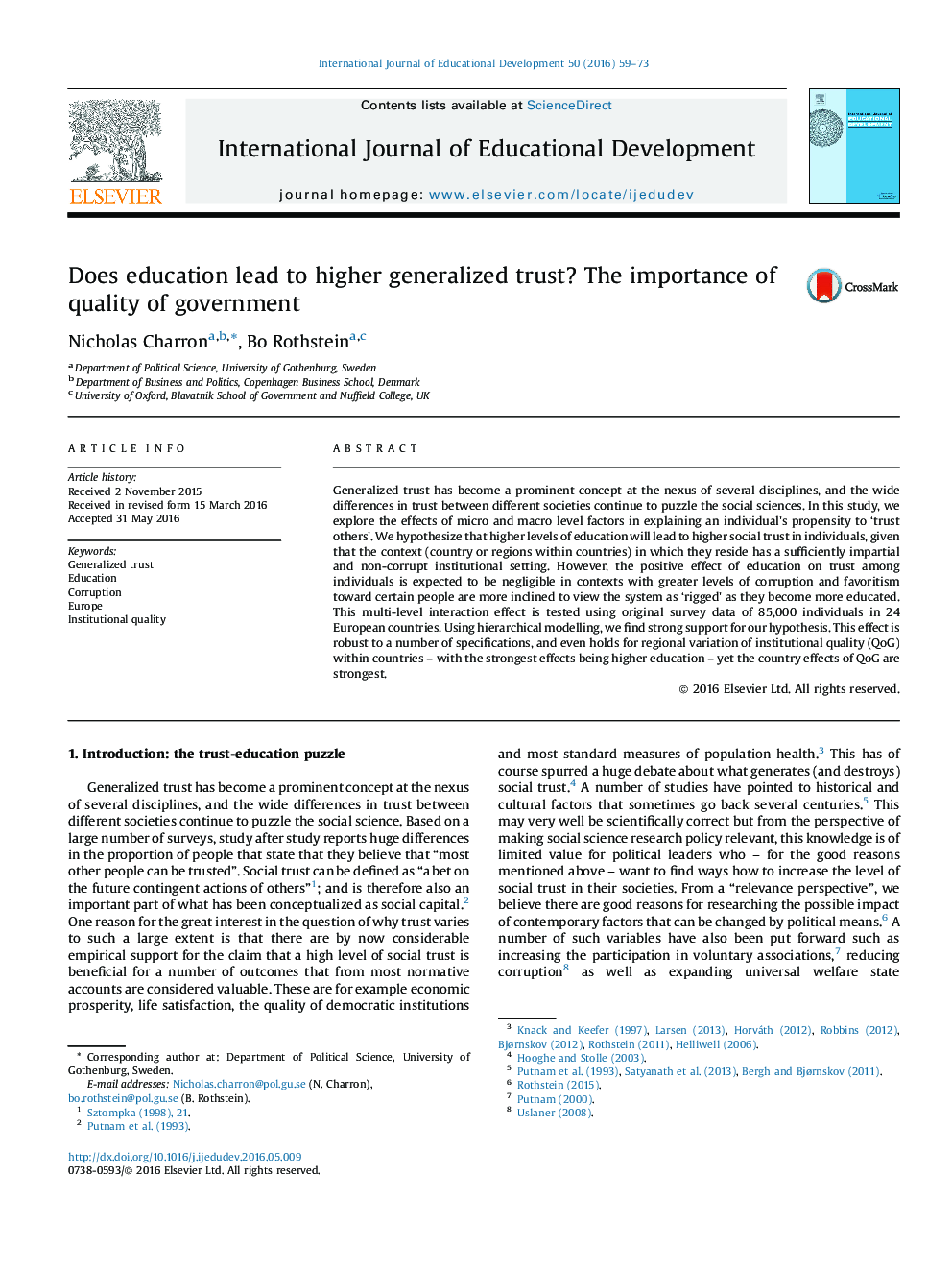| Article ID | Journal | Published Year | Pages | File Type |
|---|---|---|---|---|
| 6841188 | International Journal of Educational Development | 2016 | 15 Pages |
Abstract
Generalized trust has become a prominent concept at the nexus of several disciplines, and the wide differences in trust between different societies continue to puzzle the social sciences. In this study, we explore the effects of micro and macro level factors in explaining an individual's propensity to 'trust others'. We hypothesize that higher levels of education will lead to higher social trust in individuals, given that the context (country or regions within countries) in which they reside has a sufficiently impartial and non-corrupt institutional setting. However, the positive effect of education on trust among individuals is expected to be negligible in contexts with greater levels of corruption and favoritism toward certain people are more inclined to view the system as 'rigged' as they become more educated. This multi-level interaction effect is tested using original survey data of 85,000 individuals in 24 European countries. Using hierarchical modelling, we find strong support for our hypothesis. This effect is robust to a number of specifications, and even holds for regional variation of institutional quality (QoG) within countries - with the strongest effects being higher education - yet the country effects of QoG are strongest.
Related Topics
Social Sciences and Humanities
Social Sciences
Development
Authors
Nicholas Charron, Bo Rothstein,
